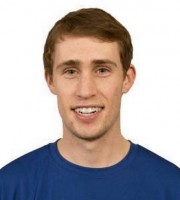
Panelists delve into ‘how male privilege manifests itself to the detriment of others’
ST. LOUIS, Mo. – A panel of scholars, students and community educators recently came together to discuss “how male privilege manifests itself to the detriment of others” – a conversation that aimed to illustrate “how privilege is abused” and “how privilege can be used to act justly,” organizers stated.
“For and With Others: Understanding Male Privilege and Practicing Accountable Allyship” was held Tuesday at Saint Louis University. It featured a six-person panel of professors and others who suggested everyone has some form of privilege, not just men, but that some have it better than others.
Nevertheless, the panelists added, everyone must fight against oppression, racism and sexism through a model of “accountability, advocacy and action.”
“What it means to be an ally is … you aren’t an ally of anything, of anybody, unless you participate in the disruption of the power structures that affect the other person,” said panelist Jonathan Smith, professor of African-American studies at Saint Louis University.
Smith said the term “male privilege” doesn’t go far enough, that that word and similar ones are “such nice, sanitary, polite words that actually move us away from discussions of patriarchy, sexism, racism, white supremacy, homophobia, transphobia, and away from all those words that are the real issue.”
“Privilege is just such a nice, evasive term,” Smith said. “For me, I want to talk about power structures and what power structures mean when we go out into the world.”
Amber Knight, a political science professor at Saint Louis University, said she teaches about male privilege in her introduction to women’s studies class, citing issues such as the “wage gap, underrepresentation of women in Congress, and sexual assault and domestic violence” as proof it exists.
Knight acknowledged the concept of male privilege has been contested in her classes by some male students who see it as malice against an entire gender, but said they need to understand it’s just a reality.
“You don’t have to go out of your way to oppress a group to be a member of privileged group,” Knight said. “Some men didn’t ask for their favored starting position. But that doesn’t mean they weren’t born into a rigged game in their favor.”
Indeed, Knight suggested she was privileged for being born in America, which she called an “advanced industrialized society.”
“If you think about things like slavery, unfair trade agreements, the exploitation of natural resources, these decisions produced and perpetuated inegalitarian relations,” she said. “I might not have had a hand in any of these decisions, as people like to say when they don’t want to take responsibility for their privilege, like ‘I didn’t own slaves,’ right? But that doesn’t mean I am not enjoying the spoils of that system.”
Talking about their own experiences with male privilege, other panelists took a less academic approach.
Luis Garay, a program coordinator with the university’s Cross Cultural Center, told the audience that he felt his own male privilege when he came out as queer.
“I remember when I was first coming out, I was like ‘gross, eww … vaginas,’” Garay said. “Those instances came up where I felt I had a say over women and their bodies.”
And Chloe Owens, a black student majoring in social work, spoke about her experiences with perceived sexism within anti-racism work.
“I’m in a room full of people trying to work on (racism), when I am having these interactions with men, the sexism that is constantly there, that I have to face, makes think, ‘OK, I’m here on this end, but I need you to be here on my end,” Owens said. “Some of these things you are saying are invalidating my experience as a woman, and as a black woman in particular.”
As the conversation turned to the concept of “allyship,” panelists debated what that term meant, unable to agree on a precise definition.
Owens said it wasn’t enough just to listen and learn from the experiences of others, but that a true ally must also learn the history of privilege and oppression through the internet and books.
Smith called for more dialogue, and argued that political correctness has actually stifled the conversation.
“I’ve encountered far too many white people who are afraid to ask or say certain things, not because they are overtly white supremacists or anything, but because they don’t want to offend,” he said. “They look and say ‘I can’t ask this question because I don’t know whether to say black or African-American,’ and then we end up in these spaces of silence.”
Other suggestions for allyship included calling on people to be open to criticism, undertaking self-examination, and acknowledging their privilege.
Around 70 people attended the hour-long event.
College Fix reporter Nathan Rubbelke is a student at Saint Louis University.
Like The College Fix on Facebook / Follow us on Twitter
IMAGES: Facebook screenshot






Please join the conversation about our stories on Facebook, Twitter, Instagram, Reddit, MeWe, Rumble, Gab, Minds and Gettr.